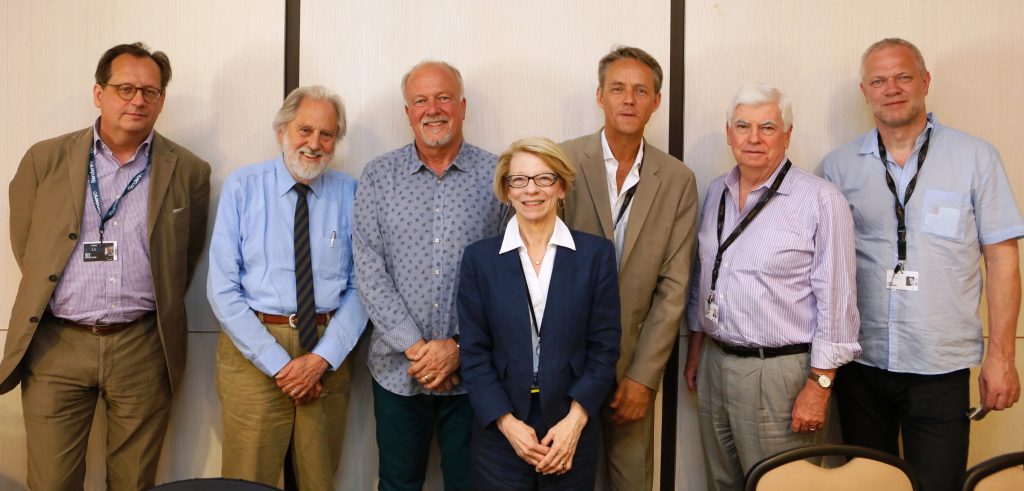Preserving a Bright Future for Europe’s Creative Industries and Consumers
The 68th Cannes International Film Festival was once again a showcase of some of the best of global cinema, and a forum for lively and important policy discussions.
I was pleased to join with several members of the global filmmaking community, including Lord David Puttnam, Ander Kjaerhauge of Zentropa, Jaume Roures of Mediapro, Michael Ryan of GFM Films, Olivier Mille of Artline Films, and Jean Prewitt of the Independent Film and Television Alliance to talk about the importance of ensuring that consumers in Europe continue to enjoy a vibrant and diverse online film and television market.
The panel’s topic of preserving diversity was especially pertinent considering that there are some in Europe pushing to do away with some of the foundations of European film financing, including the contractual freedom to license on a territorial basis. Without that freedom, many of the films shown at Cannes would never have been made.
Anders Kjaerhauge from Zentropa did a good job of describing the challenge from his perspective: “Our model is a three-legged chair: private money, public money and pre-sales. Generally speaking, the share of pre-sales in our films is between 20 and 60%. My worry is that they are beginning to cut down one of the legs of the industry. This means that we could be in a situation where Zentropa will say ‘can we produce films in the future?’ I may just become a catalogue manager.”
Filmmakers and film distributors in the European Union enjoy broad freedom to organize and determine their own distribution and marketing plans for their films. The diversity on display at Cannes is far from the only benefit of that freedom: Over 7 million people work in Europe’s core creative industries, generating 509 billion euros of GDP.
I was pleased to have the opportunity in Cannes to echo the sentiments of the many European filmmakers who called on the European Commission to preserve those jobs and economic contributions, and the copyright system that supports them. All of us who work in film and television, and all who enjoy the diversity of unique stories coming from Europe’s filmmakers, should continue doing everything in our power to ensure an audiovisual landscape that drives creativity, consumer choice, innovation, and economic opportunity.

